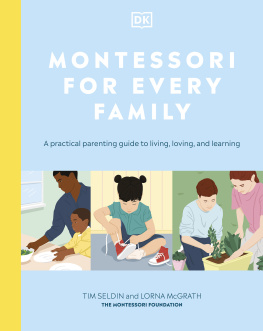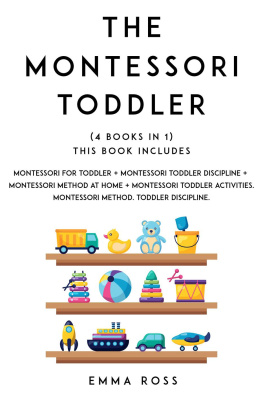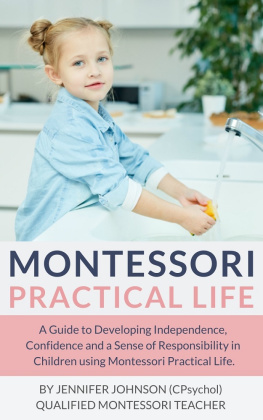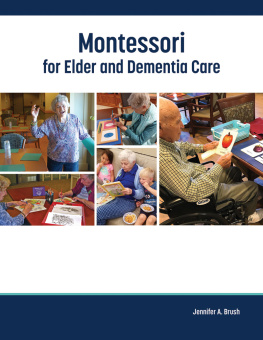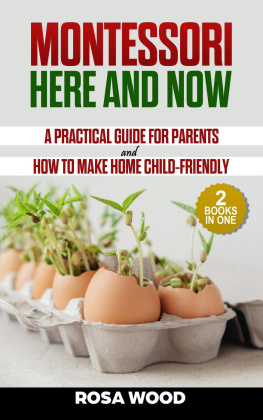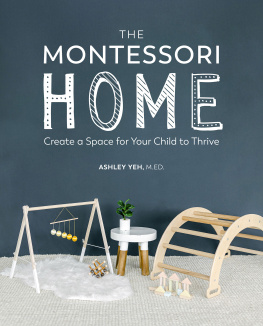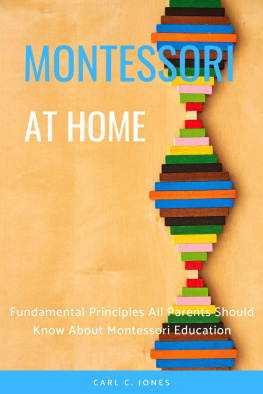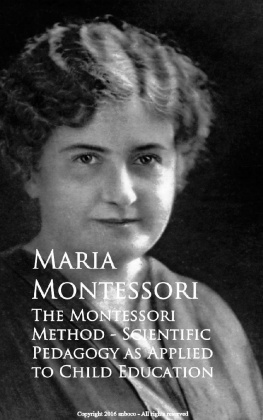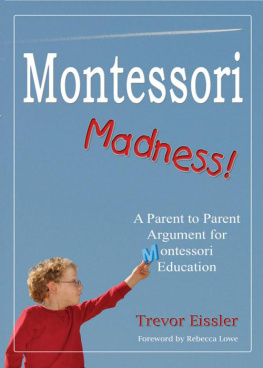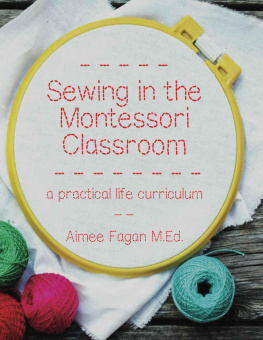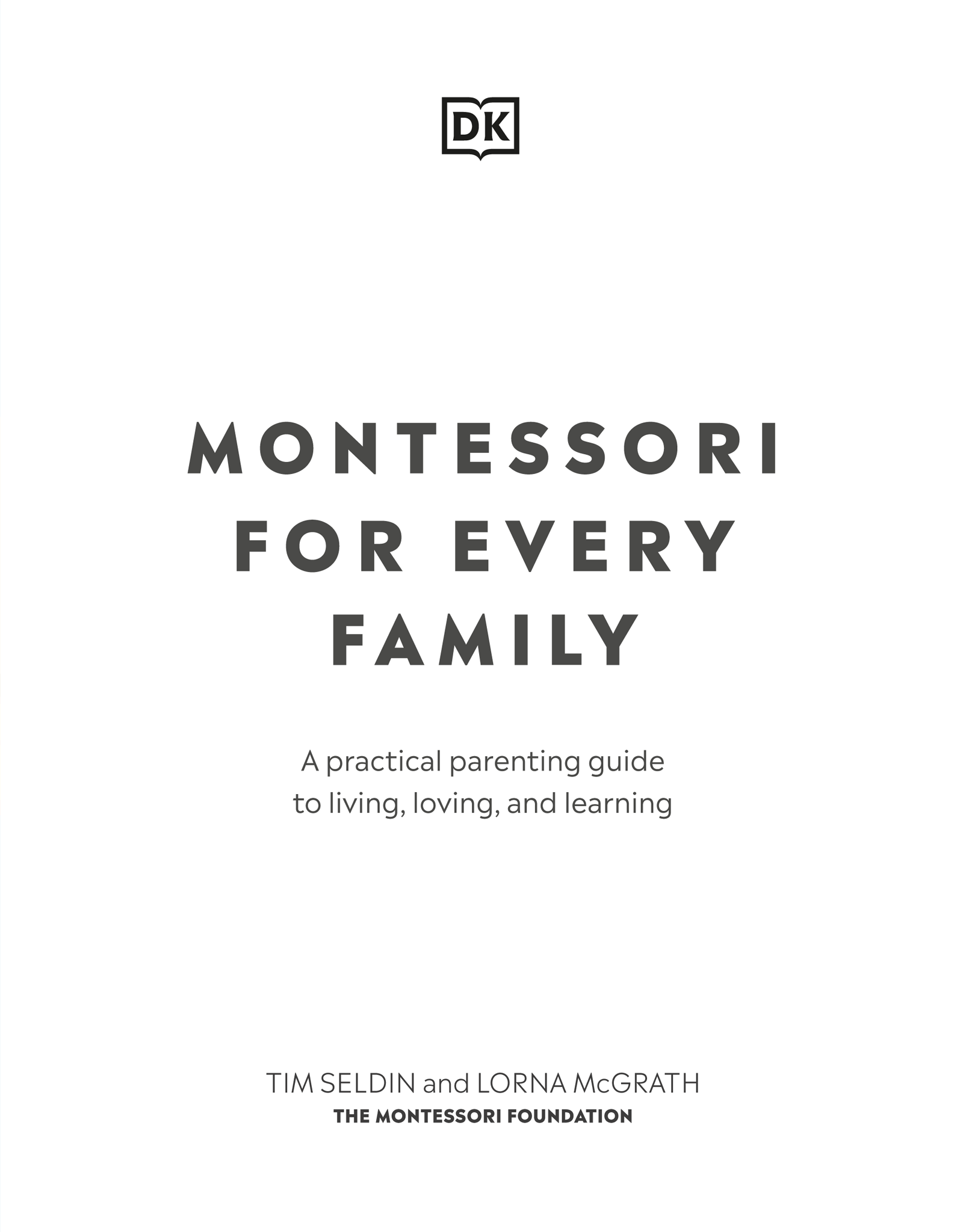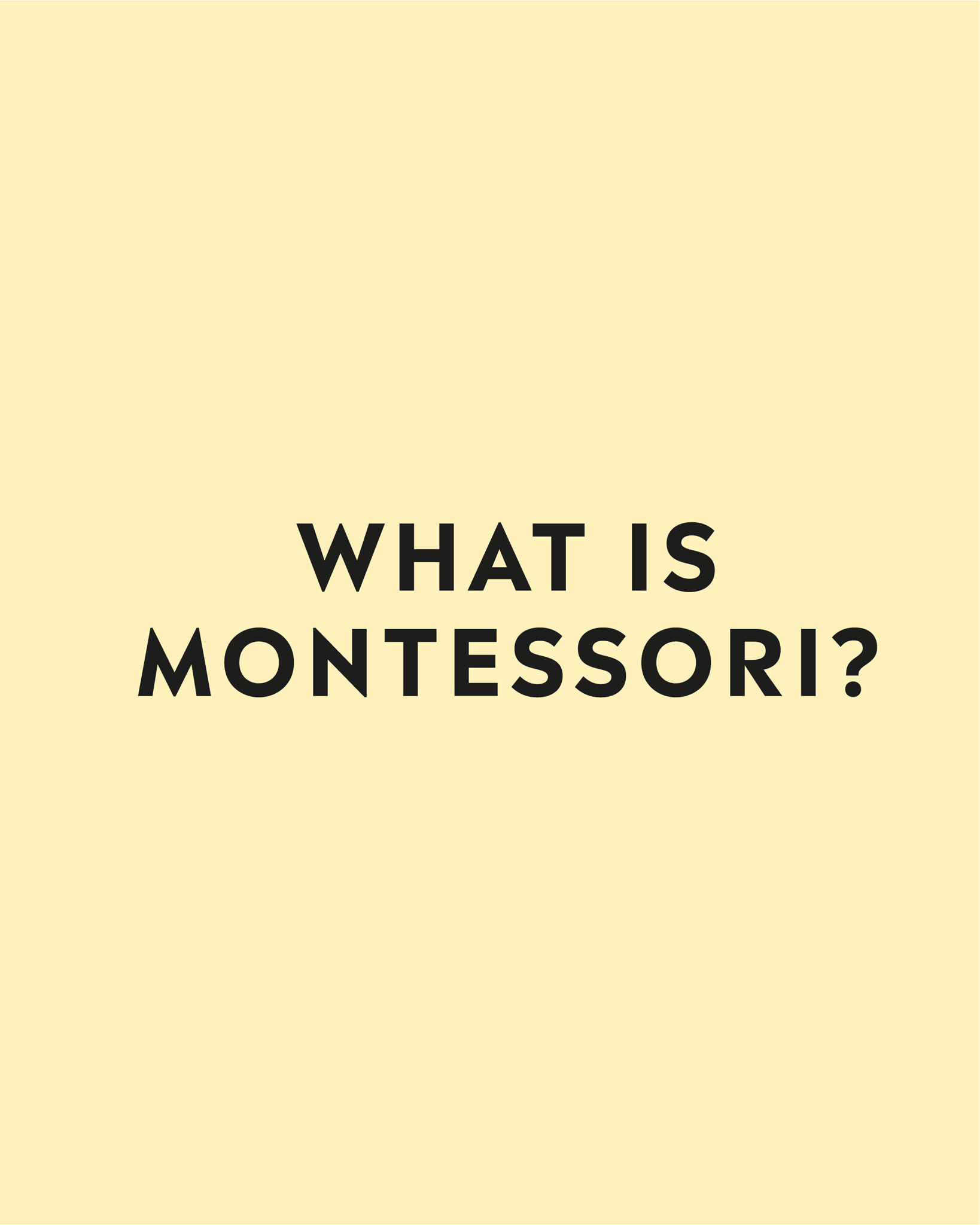CONTENTS
CONTENTS
g
HOW TO USE THIS EBOOK
Preferred application settings
For the best reading experience, the following application settings are recommended:
- Orientation: Portrait
- Colour theme: White background
- Scrolling view: [OFF]
- Text alignment: Auto-justification [OFF](if the eBook reader has this feature)
- Auto-hyphenation: [OFF](if the eBook reader has this feature)
- Font style: Publisher default setting [ON](if the eBook reader has this feature)
g
foreword
Many people worldwide have heard of Montessori schools and, whether through reputation or personal experience, are impressed with the beauty, calm, and order of Montessori classes as well as the independence, maturity, and kindness of children educated in the Montessori way.
An often-asked question is, what is the secret that allows one or two adults to manage large groups of children in an atmosphere of peace? The answer is, to a large degree, that Montessori teachers consciously learn to establish cooperative classroom communities. This book is intended to show parents how they can apply the same principles to their familys daily life.
As authors, we can barely remember a time when we werent involved in the world of Montessori education for us, it is a way of life. This book draws on our personal experiences as children, as parents, as Montessori guides, and as parenting coaches to many families who have sought a better way to raise their families in a spirit of kindness, respect, and partnership. Much of what we have learned came from observing and working with parents and children, and from raising our own families.
Being a parent is a full-time job. In the past, mums tended to stay at home to look after children while dads went out to work. Today, families of all shapes and sizes whether mums and dads, same-sex couples, single-parent households, grandparents raising grandchildren, or blended families juggle the responsibilities of work and parenting. Young children are often cared for by others, while older children spend much of the day at school and after-school activities.
At the same time, there is a growing awareness of how important the right environment and experiences are for infants, toddlers, and young children. We understand childrens brains are programmed to learn, which is why stimulating them in developmentally appropriate ways is especially essential in the early years. And it never stops. As children grow, they continue to need time, attention, engagement, and support, all the way into young adulthood.
Most of us long to give our children the best home environment that we possibly can, within the limits of our time and resources. The mission that we undertake as parents is not simply to feed, cuddle, and protect our children. We also want to teach them to become independent, self-confident, successful adults, who are happy and fulfilled. While that journey takes many years, it helps to have an idea of where we are heading and why we do what we do. If you are eager for a fresh perspective and some practical suggestions, then this book is for you. We hope that it will encourage you to enjoy your time with your children more than ever. It is filled not only with practical guidance and ideas for activities to do together, but also with the message that life is meant to be celebrated. The small, everyday things that we can do to mark occasions and to reaffirm our love for one another can make all the difference, both for our children, and for us, as mums, dads, grandparents, or guardians.
Childrens brains are programmed to learn; stimulating them in developmentally appropriate ways is key in the early years.
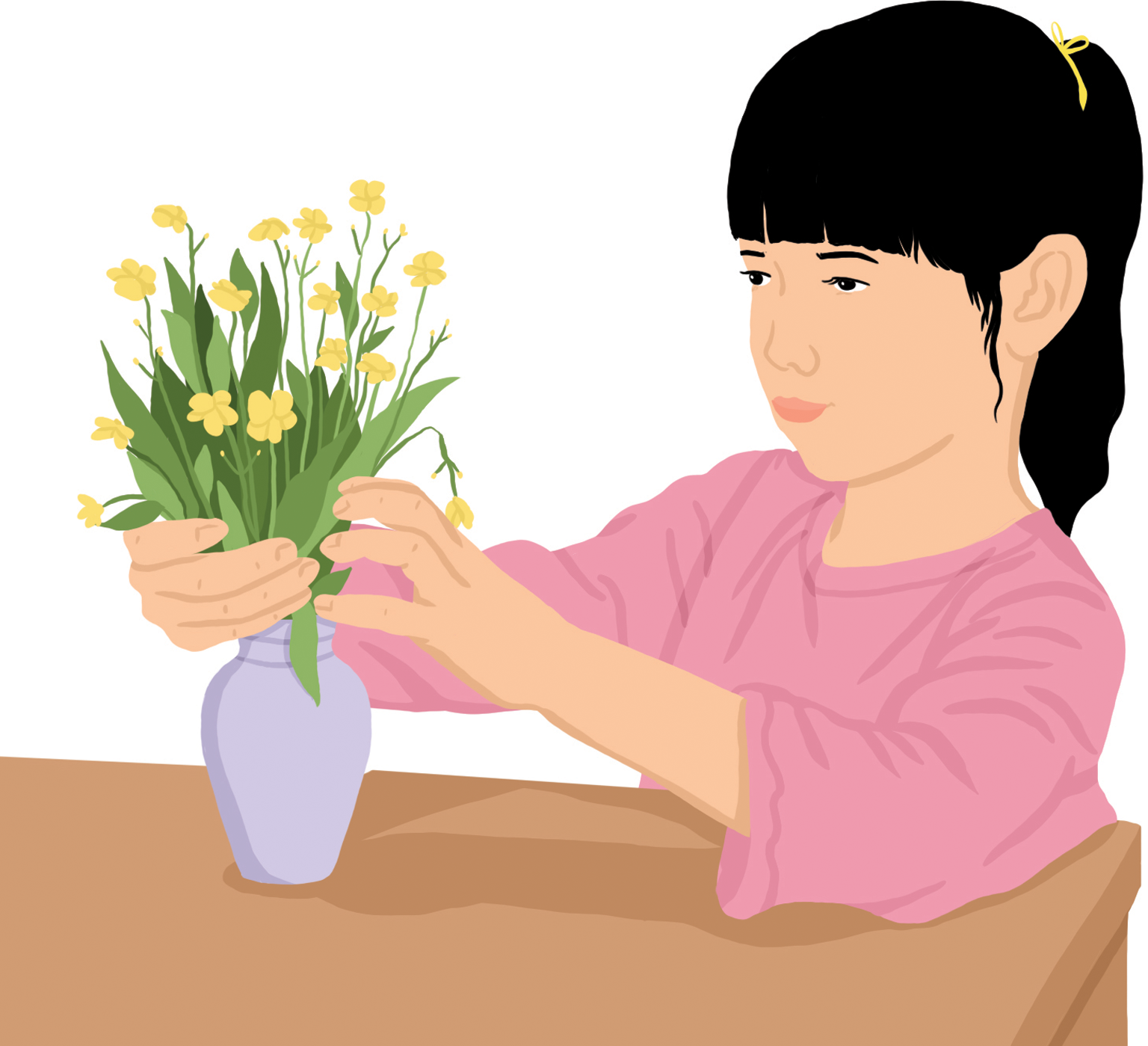
Teaching our children the small ways in which they can celebrate life daily is part of creating a stimulating and harmonious home.
g
What is Montessori? | CONTENTS
g
montessori philosophy
The term Montessori refers to more than 22,000 schools in more than 110 countries who follow the approach pioneered by Dr Maria Montessori. Its philosophy involves a way of organizing classrooms and of helping children to learn, as well as a way of thinking about relationships that can be applied at home, in the workplace, and beyond.
Montessori as a way of life
Most people think of Montessori as a pre-school curriculum and educational approach used with very young children. While it is true that the first Montessori schools were developed with children under the age of seven, today they serve children of all ages, from the youngest up through the secondary school years. Moreover, beyond the school environment, core Montessori principles are now commonly extended into family life and businesses and used as a template for social institutions.
The Montessori way of thinking encompasses many things, but fundamentally it is a way of creating a culture that helps people of all ages to work together in peaceful, mutually supportive ways. Its approach is counter-intuitive to the more familiar one of top-down authority and control, with rewards and punishments and external judgments about whether work is up to scratch. Montessori does encourage habits of excellence and the pursuit of carrying out tasks extremely well, however, it relies on helping children to internalize values, work habits, social skills, thinking, and problem solving to achieve goals. It allows children to find, or rediscover, their own voice, learn to work together in ways that minimize conflict, be in touch with their true feelings, and become appropriately assertive in ways that are mutually respectful. This way of life tends to lead Montessori children to experience great satisfaction and connection with others at home, school, and, later on, at work.
The foundation years
One of the original discoveries of Dr Maria Montessori was that the most important time in a childs education is not the years from twelve to eighteen, but rather the first six years of life. When many people assumed that children were just playing indeed, we still use the term pre-school for centres that care for young children she realized that, in reality, these are the years when a childs brain and nervous system develop most fully.
This development goes far beyond our normal academic concepts of maths and reading skills. Children are developing foundational skills and understanding that will shape them for the rest of their lives. For example, they are learning about balance and coordination; executive function skills, such as organizing and planning; the first levels of independence; and vocabulary and language skills. They are also developing an inner sense of order; a sense of social norms and values; and positive attitudes about their gender, racial, ethnic, and spiritual identity. This is the time of life when children are learning how to learn.

